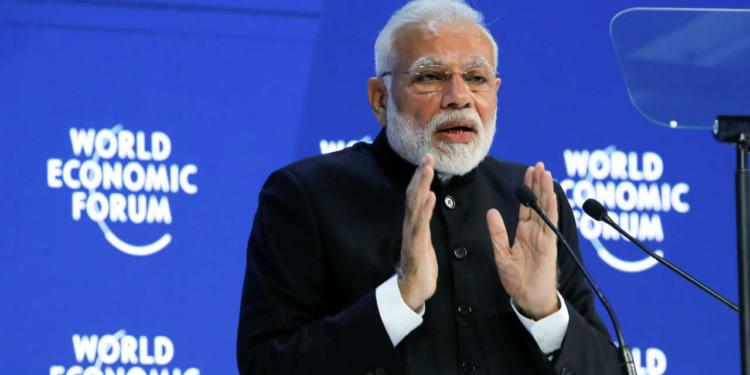A palpable and far-sighted ecosystem has been visualized in the domain of science, technology, and innovation. An ecosystem tinkering the young minds, encouraging entrepreneurship, reversing brain drain of Indian scientists, boosting indigenous innovations, achieving synergy between industry and scientific research, relevant research and innovation for socio-economic good, leveraging science and technology cooperation in the international domain.
With the help of such multi-variegated policy responses, the government initiated a profound change in the nation’s governance institutions and also development regime. They have paved a path for the people to use their science, technology and innovation skills for the public good. Introduction of technology in the sphere of governance has brought in greater transparency, accountability, and monitoring. Scientific technology is providing action-oriented solutions for ushering in Good Governance with a human face at all levels.
Previously when an individual thought of establishing an innovation start-up there was no support system. Acquiring self-employment on the basis of innovative capabilities and creativity was a fairly challenging task. This challenge was addressed with the coming of Stand-up India, Start-up India, and Atal Innovation Mission.
Leveraging technology, the implementation of several flagship schemes was immensely improved. Now multiple government services (central, state and regional) can be accessed by the common man through a single mobile app- UMANG. The online application and tracking of forms, identifying and resolving the persistent problem, storage, sharing and verification of documents and certificates have been simplified. A small entrepreneur can register on the Government e-Marketplace, and bid competitively for the supply of goods to the Government.
Pensioners no longer need to present themselves in front of a bank officer, to provide proof of life. They can leverage the Aadhaar biometric platform, to provide this proof with minimal physical effort. Digital empowerment of citizens via Tele-education, Tele-medicine, e-bhasha has been made easy and effective. Citizens of India are increasingly adopting cashless transactions via the Bharat Interface for Money (BHIM App) and moving towards a less cash and corruption free society. Promoting digital literacy and inclusion, therefore, is a cornerstone for the vision of New India.
The basic thought of leveraging the space technology for the common man’s benefit and elevation was strikingly missing. The farmers and fishermen of our country had relied on their traditional knowledge for estimating the monsoon patterns and fish breeding grounds. This involved huge time consumption, unpredictability and putting themselves in the harm’s way. Today, a farmer can access a variety of services, such as soil-testing results, expert advice, and a good price for his produce, at the click of a button. Sensor technology, drones, satellite imaging are helping farmers at various levels via-a-vis sowing, harvesting, production, fertilizers, pesticides, transport.
Any Science and Technology intervention which facilitates farmers and farming activities to improve crop productivity makes a huge impact on the rural economy. At the 106th Indian Science Congress, Prime Minister Modi had batted for the use of scientific tradition and technology for addressing the challenges faced by our farmers and fishermen. Through quick adaption to these realities space technology has been utilised for establishing early warning system, geo-tagging of assets, accurate location of breeding grounds, better disaster management, and preparedness.
The unique quality about the Modi government ’s initiatives is that there is an evident amalgamation of fundamental science and applied science, linking ease of doing business with ease of living. For instance, GOBAR (Galvanizing Organic Bio-Agro Resources) – DHAN scheme is employing the concept of waste to energy for promoting sustainable living in rural areas. It has the advantage of creating clean villages, reducing open defecation and the diseases accruing subsequently, converting waste into wealth and the resultant creation of sustainable villages.
In urban areas, Missions like Smart city and AMRUT are utilizing clean energy infrastructures for building a sustainable living environment. When we put special emphasis on piped water supply in rural habitations, continuous treatment of water becomes imperative to devoid it of any infection. To achieve this goal technology for “Drinking Water Disinfection System” has been made functional which has the dual benefit of providing clean piped water and protecting our population from water born diseases.
It is crucial to protect our space assets as they act as a backbone of India’s security, economic and social infrastructure. Recently India became the 4th country to acquire anti-satellite (ASAT) missile capability under ‘Mission Shakti’. The mission has empowered the nation in securing our communication satellites, earth observation satellites, navigation satellites apart from satellites meant for scientific research and exploration, academic studies. T
The test has demonstrated the nation’s capability to defend its assets in outer space and generated credible minimum deterrence in dissuading adversaries from targeting the country’s satellite network as well as its military installations. This goes along with the Modi government ’s vision of promoting space technology-based tools and applications in governance and development. The convergence for space technology for the well being of the common man, providing them with new solutions, promoting the development and fostering easy delivery of services has placed the nation in a new orbit.
The spirit of achieving excellence in science, technology, and innovation has always been the part of Indian Culture and energizing this wisdom Atal ji added ‘Jai Vigyan’ to Sashtri ji’s slogan of ‘Jai Jawan, Jai Kisan’. Moving forward on the dream, the Modi government has moved strategically to establish India as one of the top-ranking countries in the field of basic research. Leading nations are today in awe of our scientific ability to utilize niche of doing cost-effective, high-technology research and space ventures. With a focus on leveraging science for good governance, better policy implementation, monitoring, transparency, impetus on scientific achievements and advancement in space, the Modi government has made significant strides in enabling technology-led transformation.




























